You can attribute a lot of great relationships to perfect timing.
When you connect with the right person at the right time, everything seems to just fit.
This is especially true for sales.
Connecting with your lead too early means they won’t be ready to buy.
But if you wait too long, they may have moved on to a competitor.
Unfortunately, finding the perfect time to connect with a customer is complicated.
It’s not like you can set a timer that will ding when they’re ready to connect.
Instead, you need to qualify your leads yourself.
It’s always important to connect with your leads to figure out where they’re at in the buying process.
Asking questions, getting feedback, and building a relationship can set you on the right path for being available when they’re ready to buy.
To help you qualify your sales prospects, here are 25 questions you should be asking.
Establishing the relationship
The relationship is the most important part of closing a sale.
When it comes time to make a purchase, your consumers aren’t going to buy from just anyone.
Instead, they’re going to turn to someone they know they can trust. Unfortunately, only 3% of people trust marketers and salespeople.
In order to be there when they’re ready to buy, you want to work on establishing the relationship early on.
To lay the foundation for the business relationship you’re creating, here are a few questions you should be asking.
1. How did you hear about us?
Sales leads should be coming to you from a variety of angles.
In fact, buyers typically consult almost five different information sources when deciding on products, vendors, or services.
Some may find you on social while others may have participated in a webinar that you hosted.
Referrals are another popular way new sales prospects tend to find potential vendors or agencies.
Customers or clients who come to you by referral actually have a 16% higher lifetime value.
Knowing how the lead found you can help you understand the best way to move forward.
If the lead is a referral, this can strongly influence their willingness to work with you.
You can leverage that relationship to win over the lead and convince them to purchase.
If they found you through a more traditional lead generation source, you can get a better understanding of what aspect of your brand interests them.
2. What are you looking for in a new vendor or agency?
Ask your leads what their “dream” vendor or agency would look like.
Have them point out three key factors that they’d expect out of a new vendor or agency.
For buyers, the most important factors of a new pairing are adapting to fit processes, scaling with growth, and providing measurable results.
While you may not fit this description perfectly, it can help you better understand what they’re really looking for.
Then, think of ways that your company fits the description they’ve created.
However, don’t try to trick them into believing that you’re exactly what they’re looking for – especially if you’re missing some key components.
Instead, be upfront and honest about what you can provide and how you can help.
This kind of honesty can do wonders for the relationship you’re creating.
3. What attracted you to our brand?
Try to find the characteristics or qualities that made you stand out to your prospect.
Whether it’s your unique branding or your pricing strategy, understanding why the lead likes your brand can help you better understand where their priorities lie.
Knowing their favorite points about you can also give you an angle to focus on during your conversations.
For example, say that a lead mentions that your pricing attracted them to you the most.
This means they’re probably sticking to a tight budget.
As you nurture the lead into making a purchase, you can focus conversations around pricing and budgets.
This personalized approach can convert leads faster and help the prospect feel like you’re taking care of them.
4. How can we best help you make this decision?
Every sales prospect has something holding them back.
Whether it’s budget or not being entirely sure what they need, you want to find the hurdle that’s preventing them from pulling out their credit card.
Finding where that obstacle is can help you qualify your leads faster.
Ask your sales prospect what you can tell them about or offer them that will help them say “yes” to a deal.
Remember to listen to their unique challenges and fears.
Even if you’re trying to qualify multiple leads at once, you want each to feel special.
5. Who else is part of this decision-making process?
On average, 6.8 people are part of the B2B decision-making process.
Unless you’re working with very small business, you’ll probably need to convince more than just one person that you’re the right agency or vendor for them to work with.
However, 90% of individuals stated that there is usually one member who pushes the decision their way.
To ensure you’re establishing a relationship with all the right people, you want to find out exactly who is involved in the process of making decisions.
You’ll also want to find out where this individual fits within that process.
Knowing if you’re dealing with the CEO or the manager can make a major difference in how you pitch your solutions.
Discovering the problem
Before a lead can make a decision to work with you, they need to understand why they need a change.
You can do this by helping them find the problem with what they’re currently doing.
According to Gong.io, discovering business issues should make up the majority of your discovery calls.
Chances are, they probably know something isn’t right.
However, they may not know exactly what needs to change, so they don’t know why they need your help.
By bringing the problem to the surface, you’re making your leads more aware of where they’re falling short.
Focusing on where they’re going wrong or falling behind can encourage them to look for a solution faster.
You can help them find their problem with these questions.
6. What resources or solutions have you tried in the past? What happened?
Ask your prospects to talk about what they’ve already tried.
This can help see if you can offer different solutions.
It also helps the lead recap what they’ve already been through.
By going back and covering all the things they’ve tried and failed with, they can begin to understand what solution they might be looking for.
Additionally, covering the things that have brought success can give you some insight into their audience’s behavior.
Arjun Varma, Sales Manager at Quantcast, uses the tactic “ask, define, explore” to get more from his prospects.
He says:
“Ask discovery questions to uncover the largest business challenges a prospect is facing. Define the implications of these challenges. Explore a partnership or sale that addresses the defined challenges and helps the customer do more business.”
You can then use this information going forward to provide them with solutions that are more likely to work.
7. Why weren’t you happy with your last vendor or agency?
Sometimes, it isn’t the attempted solution that isn’t working. It’s who they’re working with.
Letting your lead discuss the problems they’ve experienced with their current agency or vendor can help you better understand what they’re expecting out of a new partnership.
Maybe their current agency isn’t working fast enough.
Maybe they aren’t giving them the personalized attention they had hoped for.
Or maybe they’re just looking for something new and different.
However, knowing what they don’t like can help you become what they do like.
8. What are you hoping to accomplish in a new partnership?
Bouncing off their unhappiness with their current vendor, try to see what they’re hoping for in a new partnership.
Try to go beyond simple business goals.
Instead, focus on what they’re looking for in the actual relationship with your business.
And remember: use collaborative language.
Sales representatives who used “we” instead of “I” or “you” were more than twice as likely to get a deal.
As you talk about what a new partnership would look like, start creating an image in the prospect’s mind of the two of you working together.
9. Why are you choosing to look for a new agency or vendor now?
Try to get to the root of what happened to push the lead to connect now.
Was there a particular event that made them realize they need to make a change?
Are they fed up that others aren’t meeting their expectations?
Are they looking to launch a new product or service and needs some additional hands on deck?
Customers tend to leave companies when they feel like the company is ignoring them, when they find a better deal, or when they have a bad experience.
When you know their purpose behind connecting, you can get a better idea of when and why they’re looking for a new deal.
10. What are your greatest strengths and weaknesses?
Take a minute to try and understand the lead’s perspective about their own business.
Ask your sales prospect to outline where they believe they shine and where they think they may be lagging behind.
Knowing how they view themselves can help you understand their priorities.
Finding a solution
Once you’ve discovered the problem and agitated it, you want to help your leads find a solution.
By working with them to discover what their next move should be, you’re establishing trust and confidence that you can help them through the next stage of their business.
Here are a few questions that can help you and your lead discover the right solution for them.
11. Where do you see your competitors surpassing you?
Ask your lead who they believe their competitors are.
Then ask how they believe their competitors are surpassing them.
By getting them to think about the areas their competitors are doing better in, they can better understand the solutions they need to implement to see similar success.
This can give both of you a better idea of what steps you need to take moving forward.
12. What is your budget?
The budget is arguably the most important part of a new partnership.
That’s why almost 60% of buyers want to discuss pricing on their first sales call.
For both you and your lead, you need to find a way to create a deal everyone is happy with.
Talking about budget expectations up front can help you understand where the lead falls in becoming ready to purchase.
You can also get an idea of where they can fit within your pricing strategy and if they’ll be able to afford your products or services.
13. What is more important: money or productivity?
Unfortunately, you typically can’t have more productivity on a smaller budget.
Asking your leads if they’d rather grow quickly or save cash can allow you to get a feel for where their current priorities lie.
If they’re looking to move quickly, they may be more likely to make a purchase sooner.
However, if they’re looking for a new budget-friendly option, you can provide them with the marketing materials they need to see you as the right financial fit.
14. What requirements or deal-breakers are there for working together?
Requirements and deal-breakers can sometimes be a difficult thing to talk about.
However, discussing these requirements up front can make it easier for you to tell if you’re the right fit for each other.
Regardless of the direction the conversation goes, it’s always important to be open and honest about your product.
Buyers find vendors more influential when they are honest about their product or service – even if it means admitting it isn’t the best fit.
Trying to deceive the customer into believing you offer the perfect solution will only cause headaches and frustration down the road.
15. What is your biggest priority right now?
When a new lead comes to you, they probably have a few ideas about what they’d like to accomplish.
Unfortunately, it isn’t likely that you’ll be able to tackle all of these problems at once.
Talk about what the customer’s main priority is at that time.
This can give you a better idea of what solutions they’re really looking for.
Discovering a timeline
Timing errors or miscommunications can cause serious problems in new deals and partnerships.
Discussing a timeline up front can also help you identify when the prospect might be willing to buy and what commitment they’re looking for from you and your team.
By determining your prospect’s ideal timeline, you can then get a better idea of where they are in the buyer’s journey.
The more you know about when they’re looking to buy, the more specific content you can provide them with.
Here are a few questions you should ask to learn more about your prospect’s purchasing timeline.
16. When do you hope to get started?
There is a big difference between starting in a week and starting in three months.
However, 63% of people requesting information about your business will take at least three months to buy. Another 20% will take more than twelve months.
If you know that your lead isn’t looking to buy for another year, you can focus your nurturing efforts further down the line.
However, if they’re looking to get started immediately, you’ll need to be more aggressive about the way you promote.
Although it may not be exact, ask your prospect for a timeframe of when they’re looking to get started.
17. What is the timeline for your goals?
Talking about goals is great, but it’s more important to know when they’re hoping to accomplish those goals by.
Getting a timeline for when they’d like to achieve their priorities can help you better understand what kind of commitment they’re looking for.
If they need to accomplish their goals within just a few weeks, they may be looking to hire a committed team immediately.
On the other hand, if they have no idea when they’d like to accomplish their goals, they may need some more nurturing and education.
18. Do you have any outside factors influencing your timeline?
Your leads may have an idea of when they’d like to get started or complete their goals by.
However, it isn’t always in their control.
Sometimes, outside factors constrain our leads.
External due dates and other factors can make your job more complicated. At times, they can influence when a deal can actually go through.
They can also add some restriction about when a prospect is really ready to make a purchase.
Whether they have a contract they need to see through or they have a deadline they’re scrambling to meet, you’ll want to ask if there are any outside factors that will influence the timeline.
19. What could stop us from working together?
Unfortunately, lots of things can make a deal fall through.
In fact, the average lead-to-deal conversion rate for B2B sales is only 0.08%.
Maybe your lead found a better deal elsewhere or they decided that they didn’t need your product or services after all.
Regardless, discuss what potential events could prevent you from working together.
Head sales experts like Geoffrey James use this type of “reverse selling” trick.
In an article that Inc. published, Geoffrey sites “The Reverse Close” as one of his five key ways to close a deal.
Once you know what might inhibit a deal, you can find solutions to ensure that the sale goes through.
20. How soon do you want to see results?
Knowing what kind of turnaround your prospect is expecting can help you better understand when they may be willing to make a commitment.
If they want to see results in just a few weeks, you’ll want to get started right away.
However, if they have no idea when they’d like to start their progress, they’re probably not yet ready to make a purchase.
Establishing future success
It’s always more efficient to gain repeat customers than it is to constantly connect with new prospects.
This is why you should always plant the seed of a long-term relationship when you’re still in the nurturing process.
Letting your sales prospects know how you can help them through growth and changes can help you secure long-term relationships with them.
Here are a few questions you should ask to help establish a future relationship.
21. What hurdles might we run into down the road?
It’s impossible to know exactly what hurdles will show up when you’re working with a new client or customer.
However, determining what they could be can help you plan ahead.
Discuss which hurdles might arise and what solutions they may need.
22. How do you measure success?
Small business owners are becoming increasingly confident in their success.
However, success can mean different things to different people.
Some simply see success in dollar signs while others focus on the number of happy customers who keep coming back for more.
Knowing how your sales prospect defines success can help you determine what will keep your customer happy and what they’re ultimately looking for from you.
23. What are your long-term goals?
Chances are, you’ve already discussed some goals at this point.
However, you really want to dig deep to find out what long-term goals the individual or company is hoping to achieve.
Ask what they’re looking to accomplish further down the road – even if those dreams are too far out of reach at this time.
24. How do you see your needs changing as you grow?
Your sales leads are looking for a solution for now.
But if you can also provide a solution for the future, you can help them achieve growth with a smoother progression.
Helping them understand how their needs may change as they grow – and how you can be there to help them solve new problems or meet new goals – can help set you up for a long-term partnership.
25. Where do you see this relationship going moving forward?
Find out early if they’re only looking for a short-term deal.
Are they just looking for someone to help with their current goals, or do they want a long-term partner who can help them overcome future hurdles?
For PJ Pereira of Pereria & O’Dell, a willingness to collaborate is one of the most important factors when choosing a new agency to work with.
Showing your prospects that you’re thinking about how you can keep the relationship going as they grow might encourage them to work with you over a competitor.
Conclusion
Quit playing the guessing game when it comes to connecting with sales prospects.
If you want to stop missing out on high-quality leads, stop assuming that you know when they’re ready to make a purchase.
Instead, let them tell you when they’re ready – even if they don’t realize they’re doing it.
By asking these 25 questions, you can get a better idea of who your prospect is, what they’re looking for, and how you can help them.
What questions do you like to ask your sales prospects?
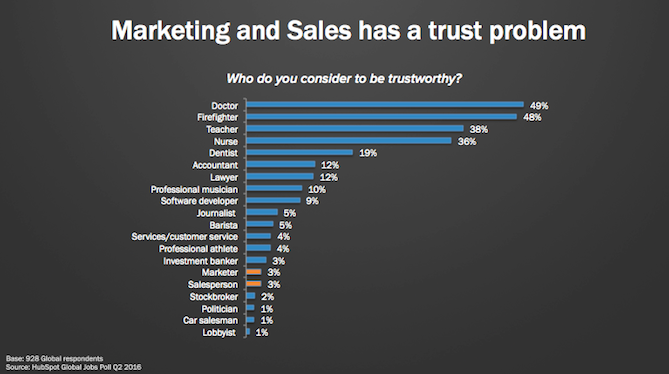
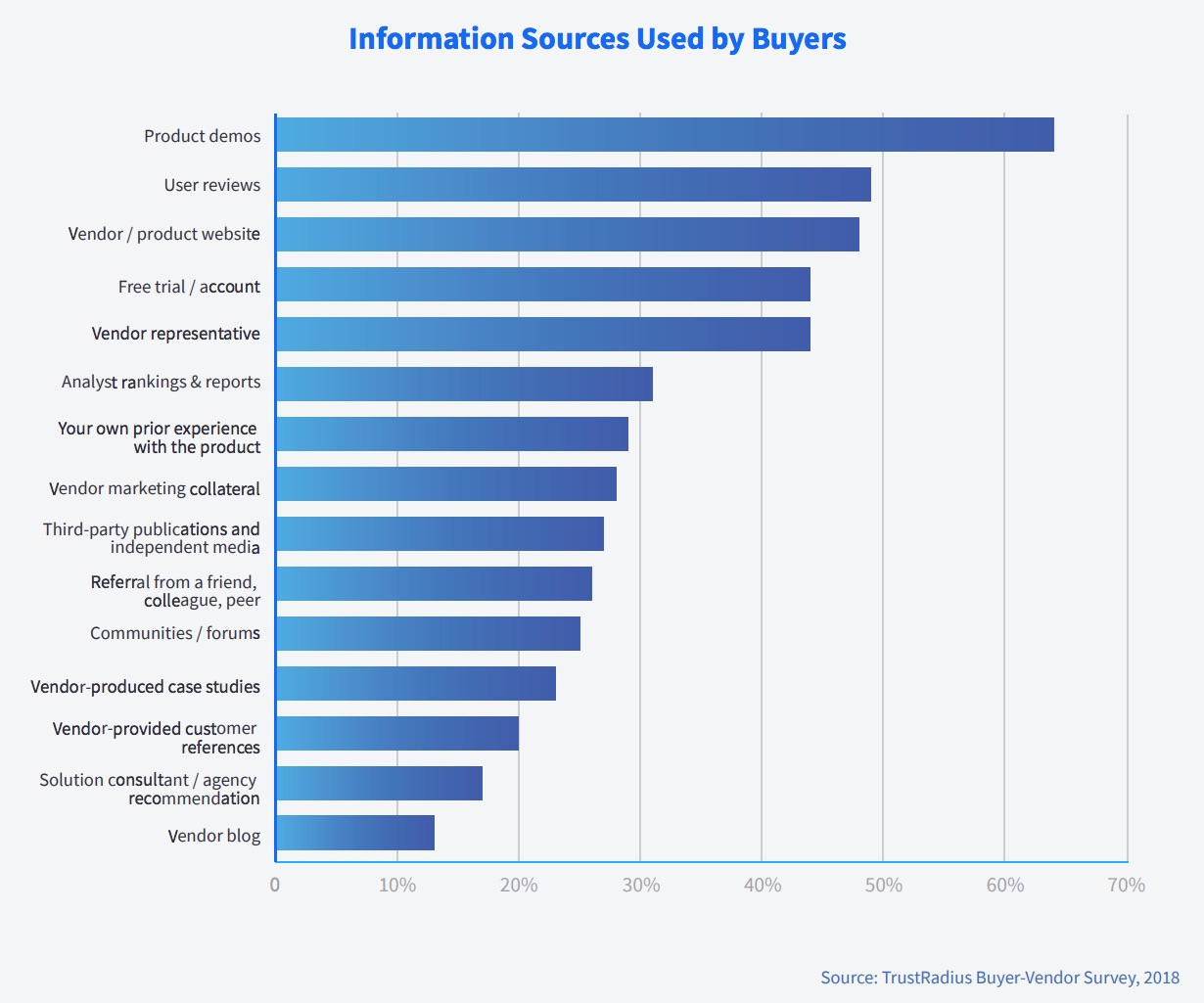
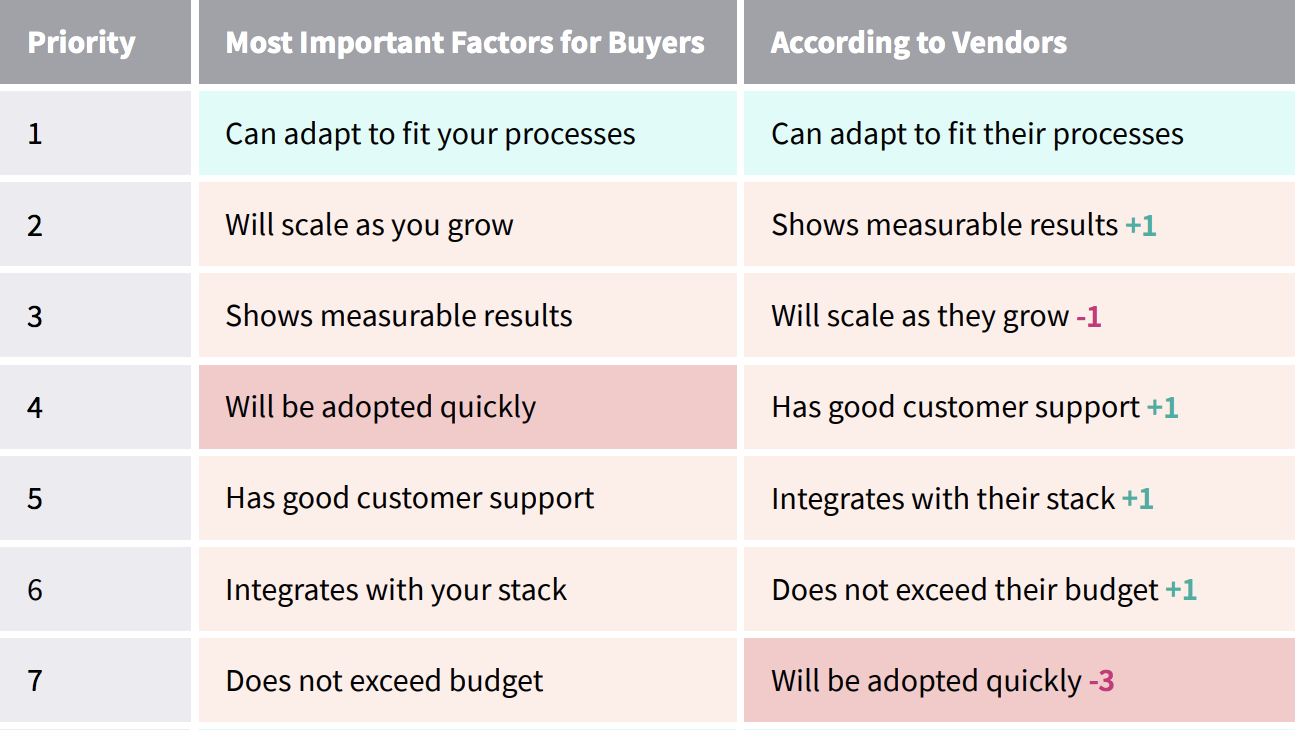
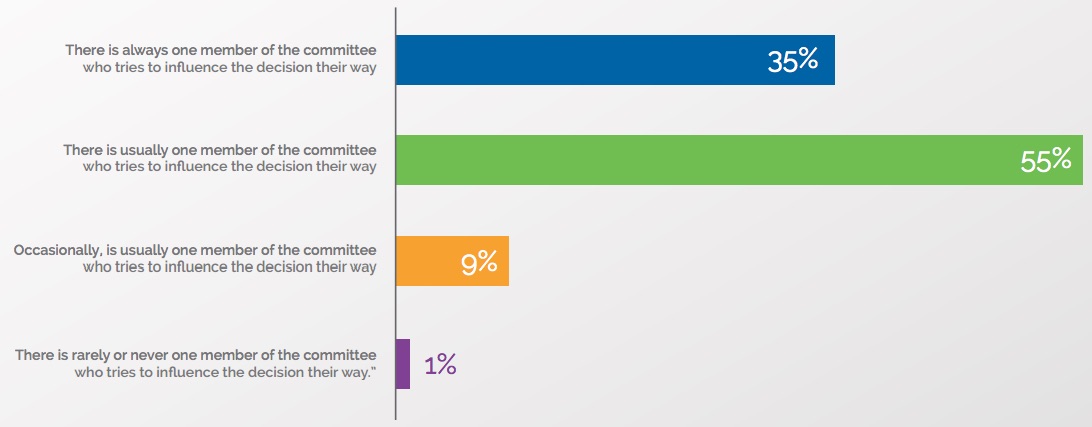
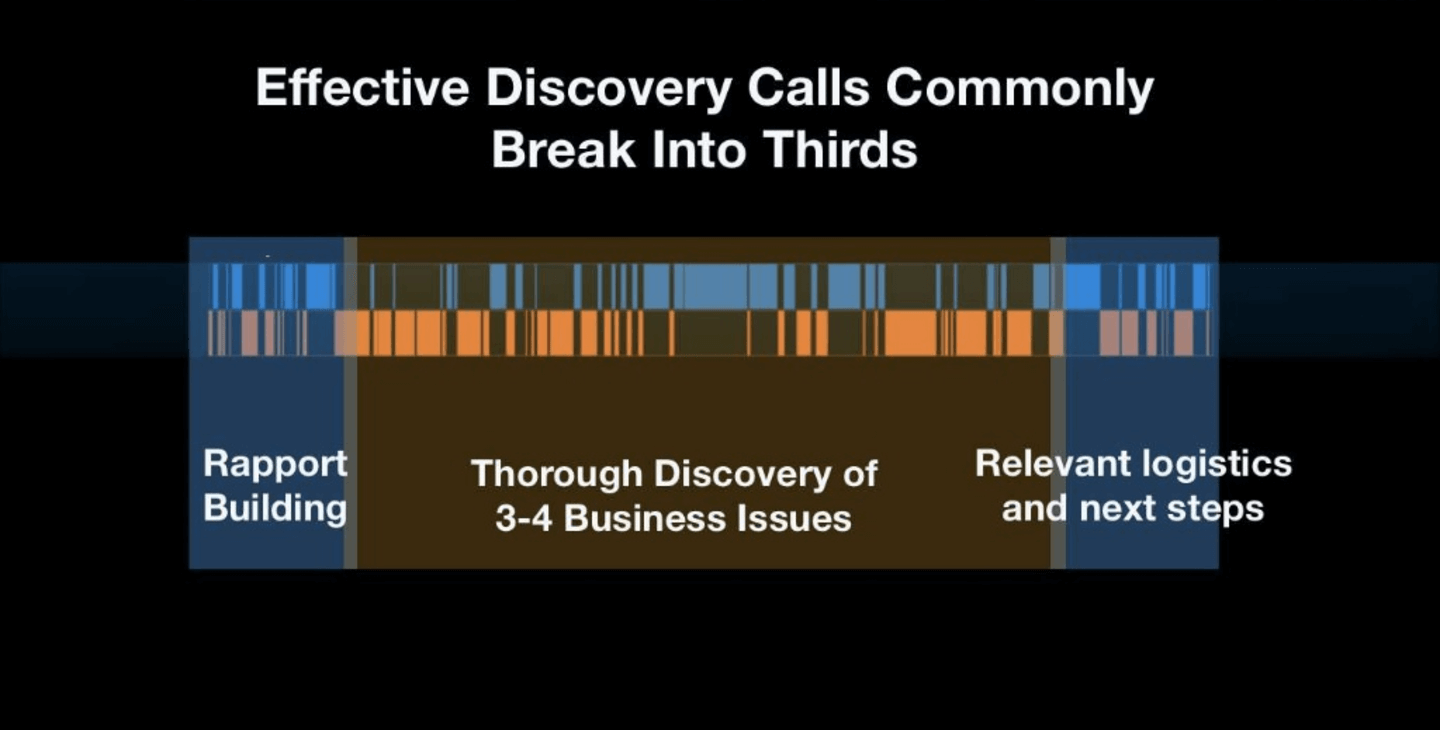
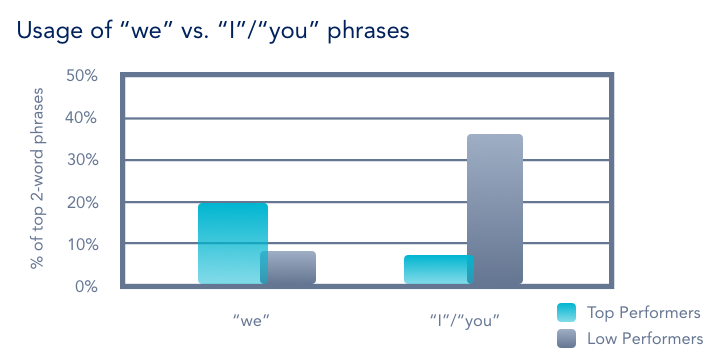
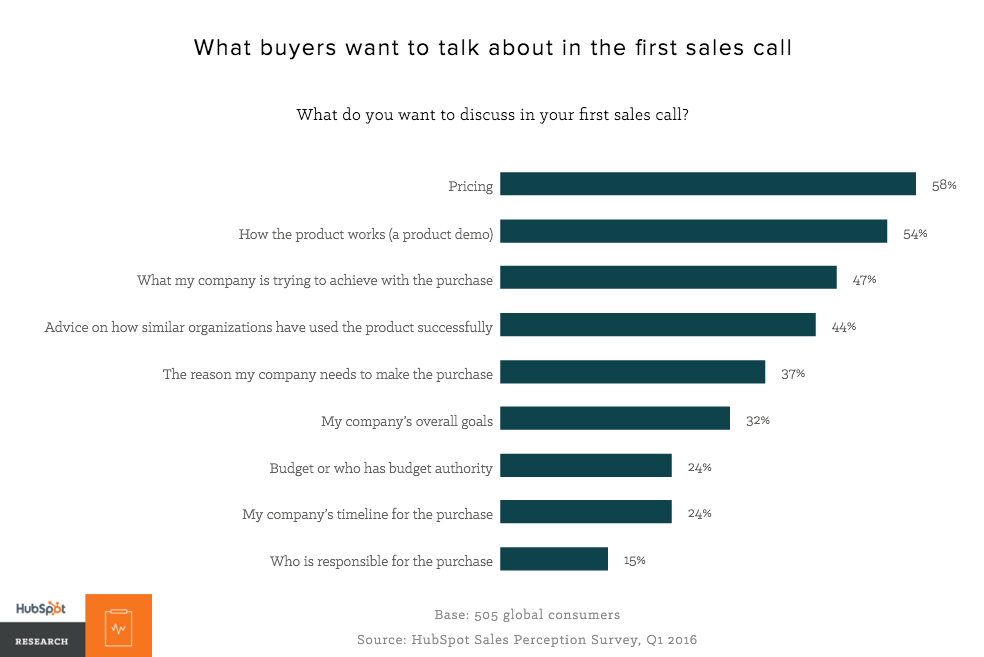
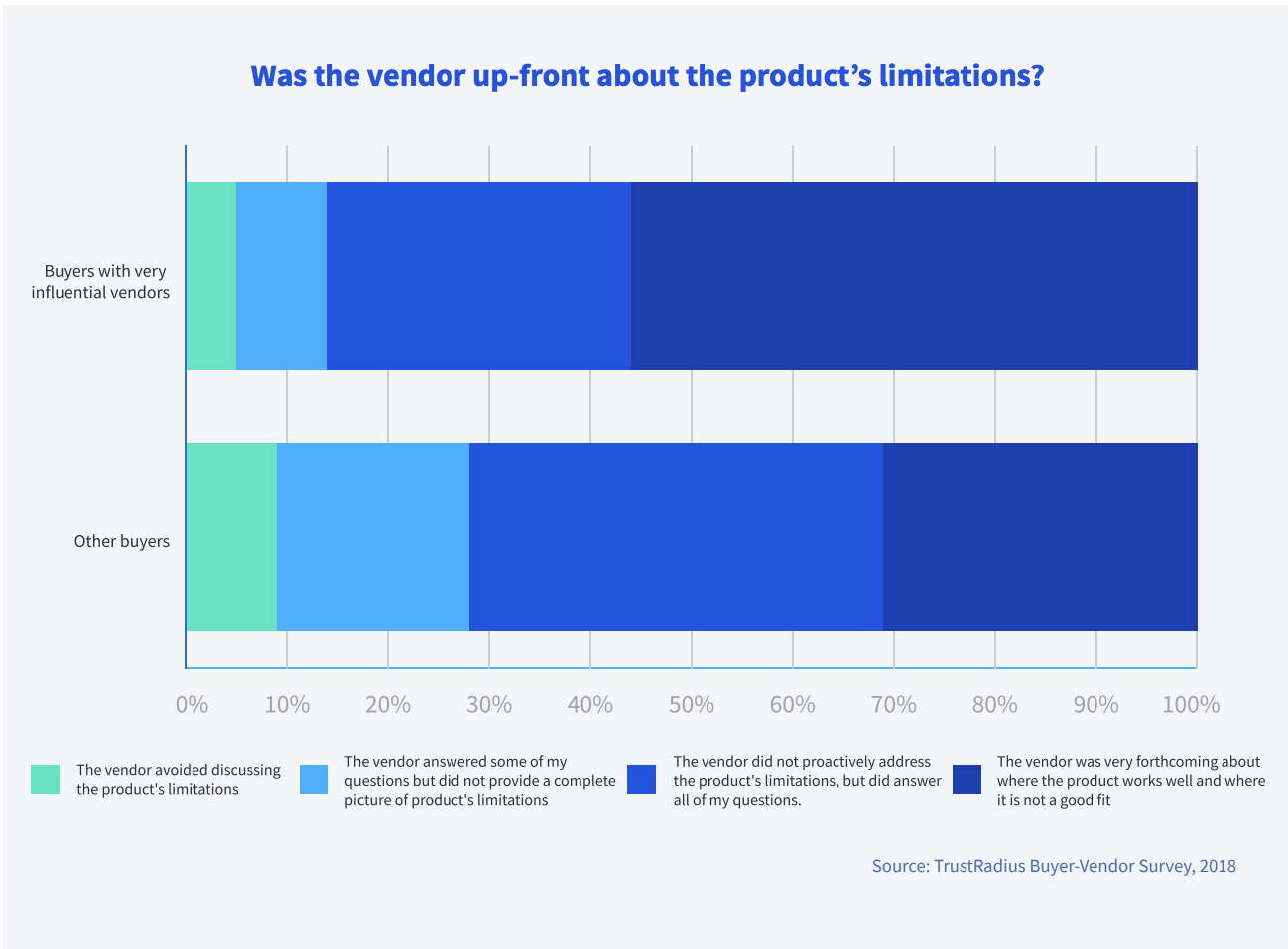
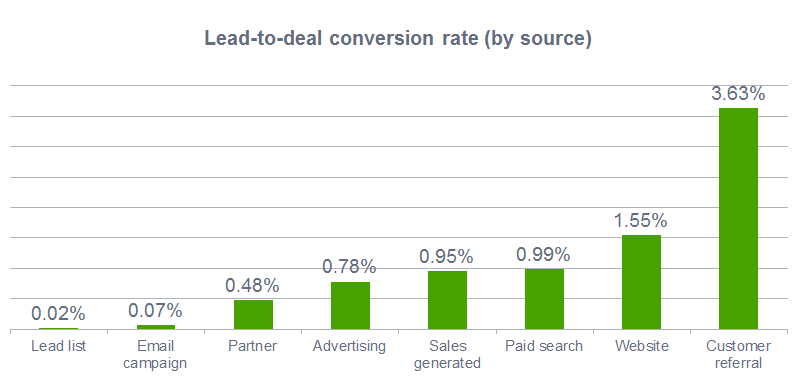
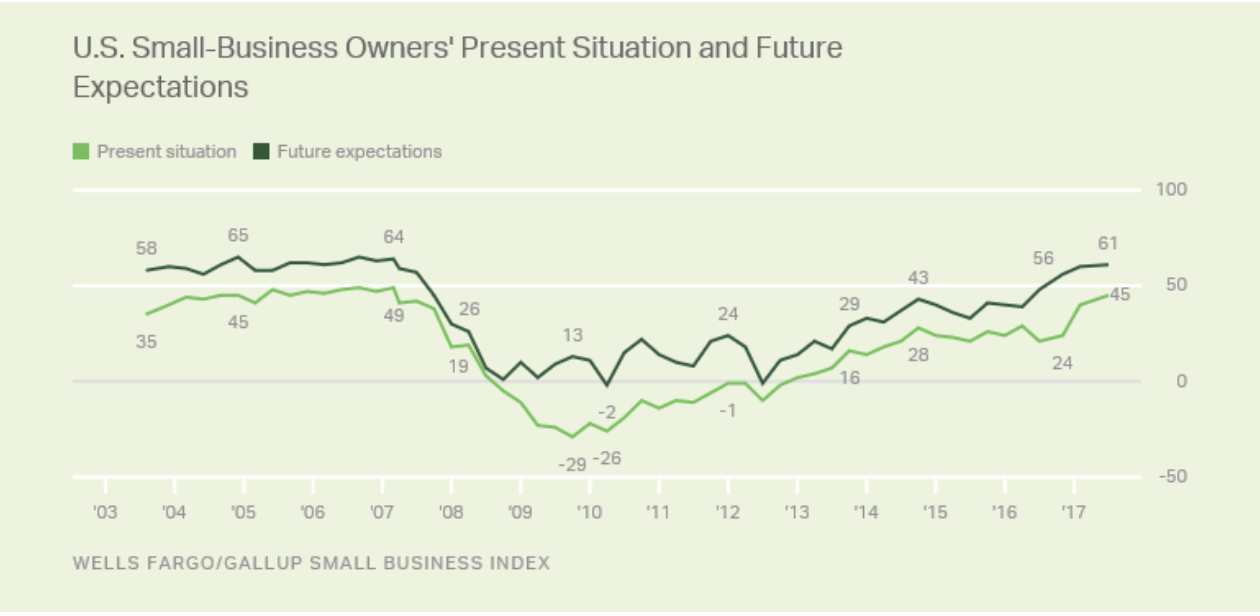
Comments (14)